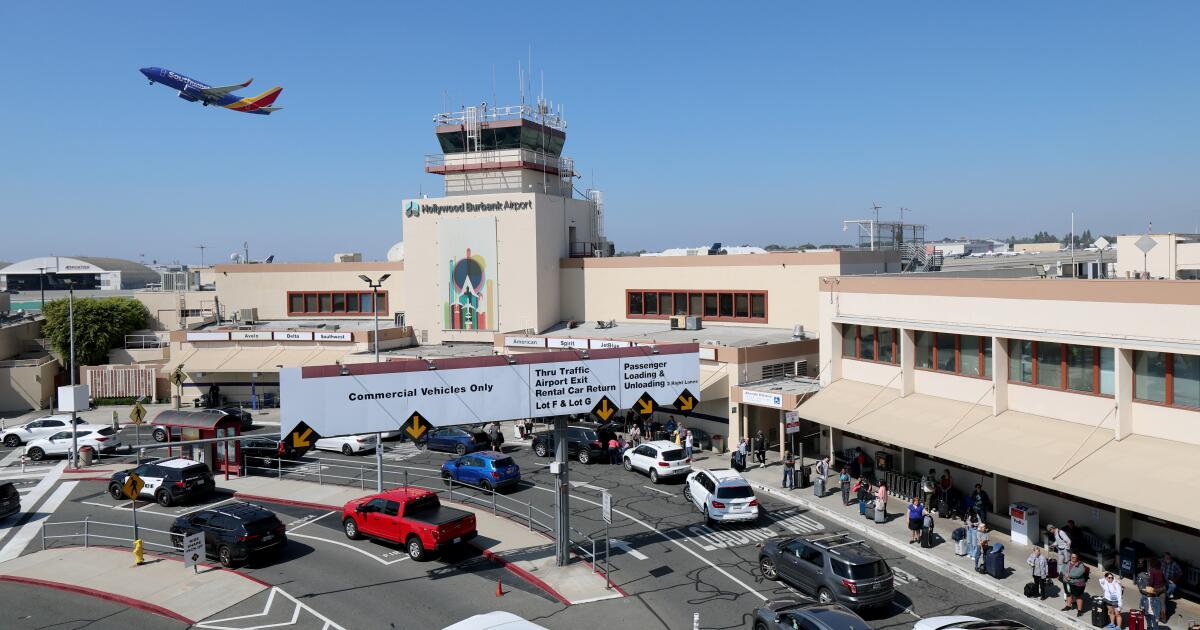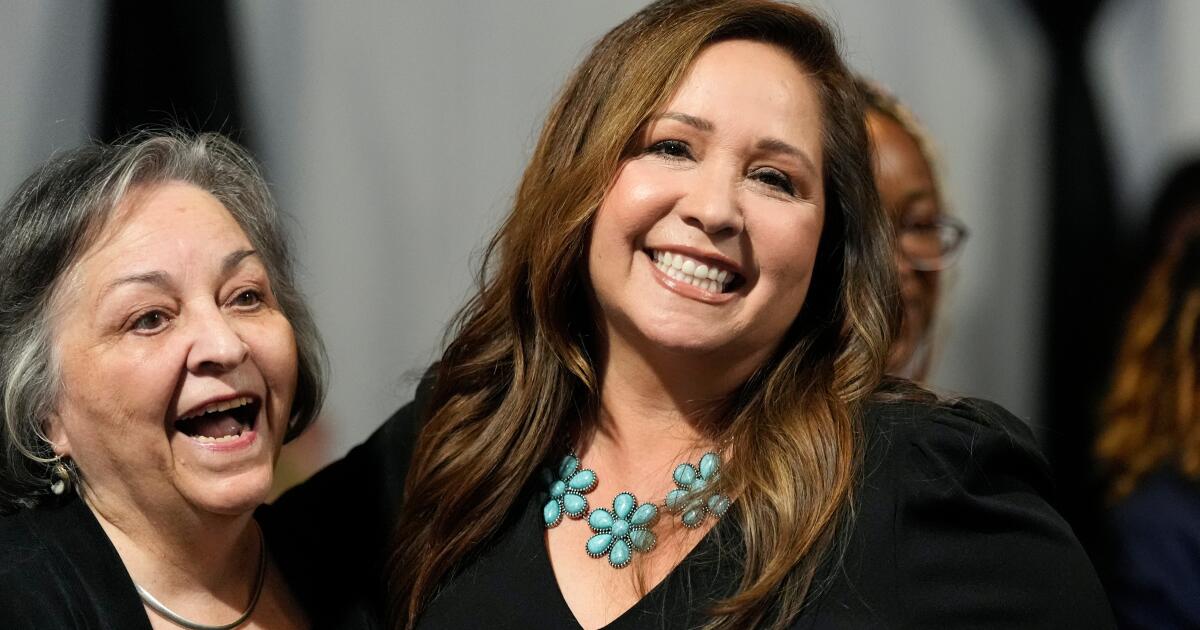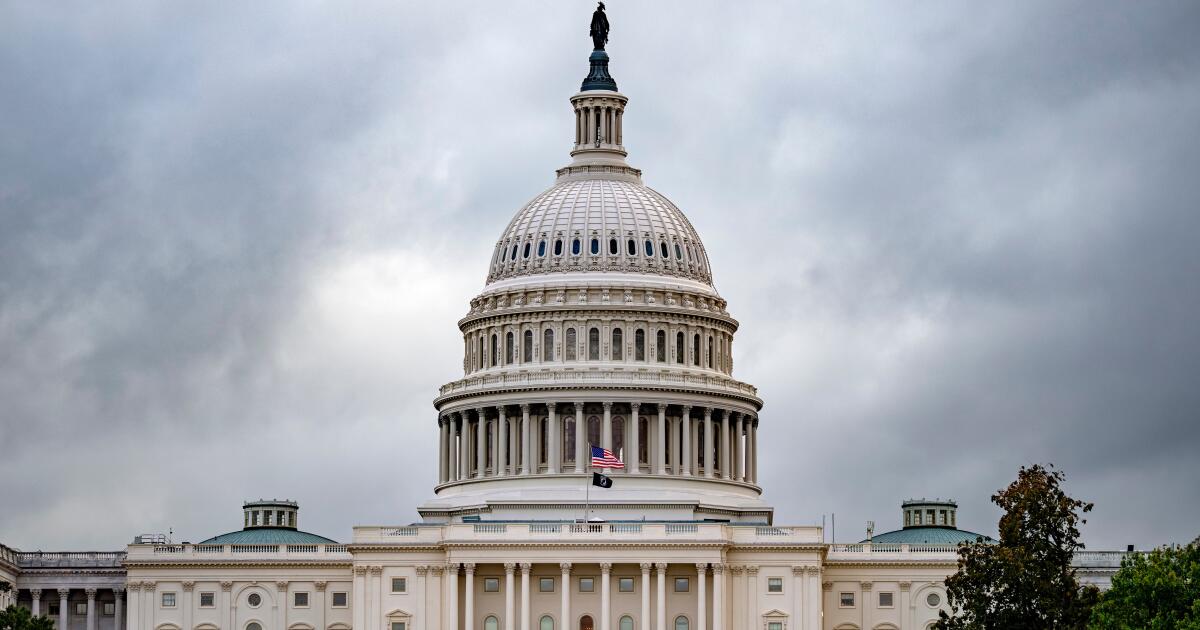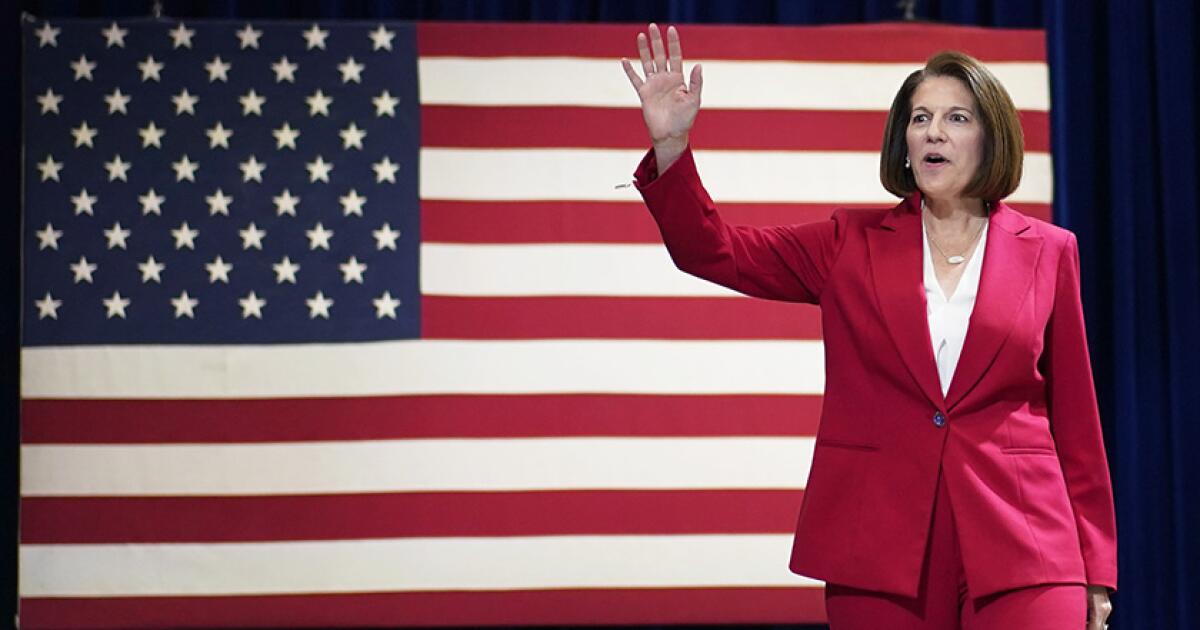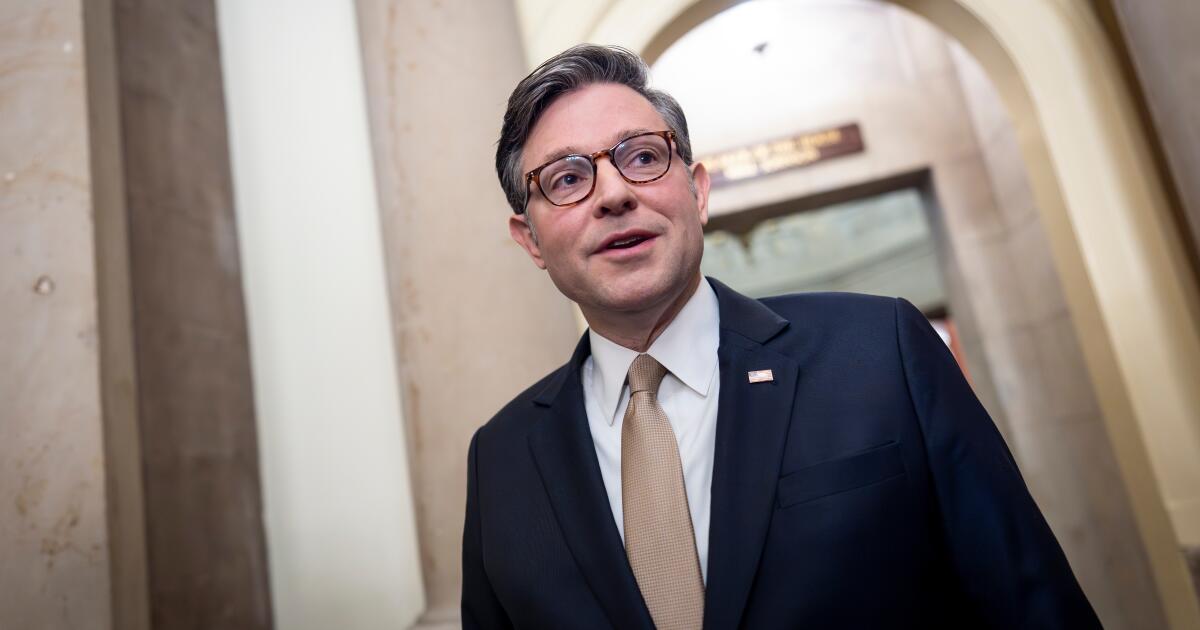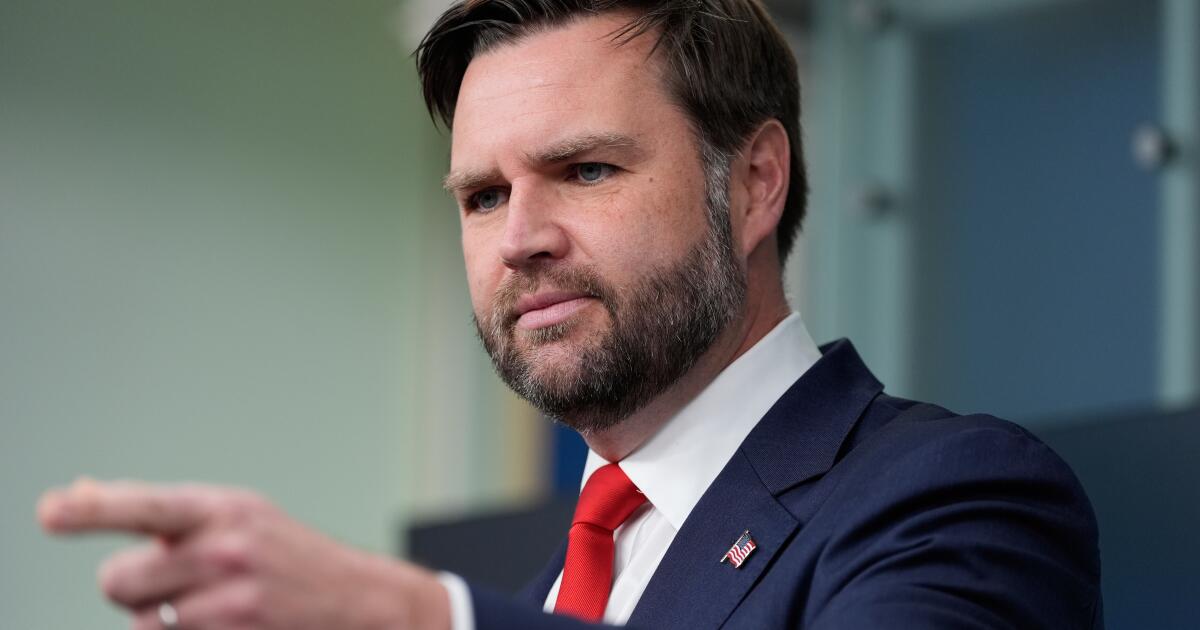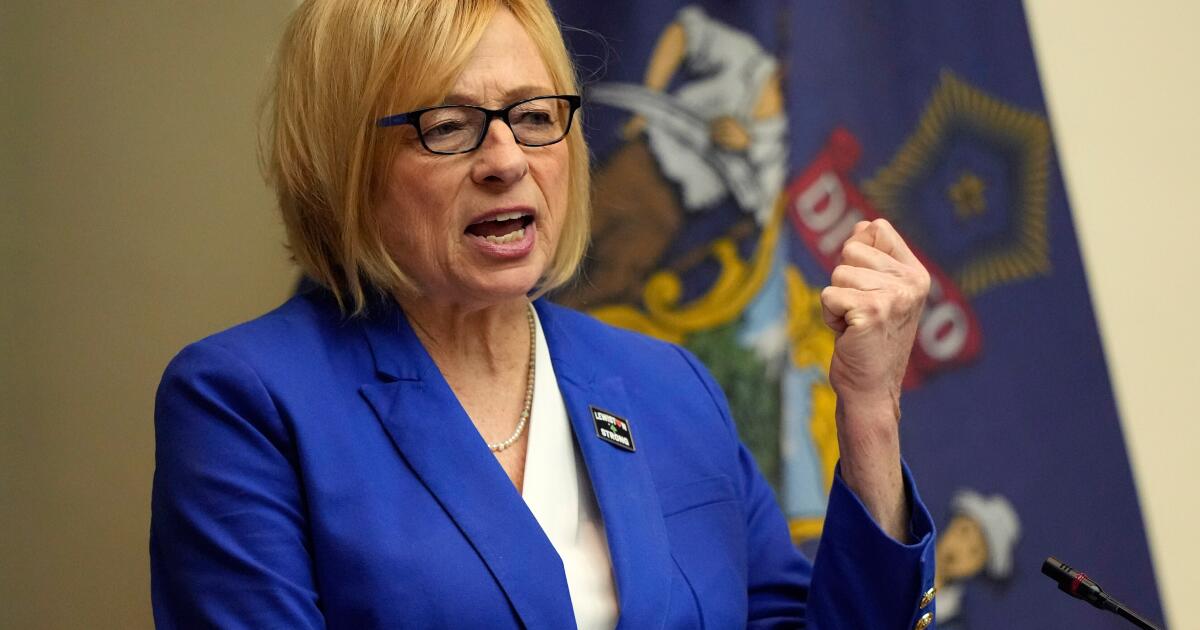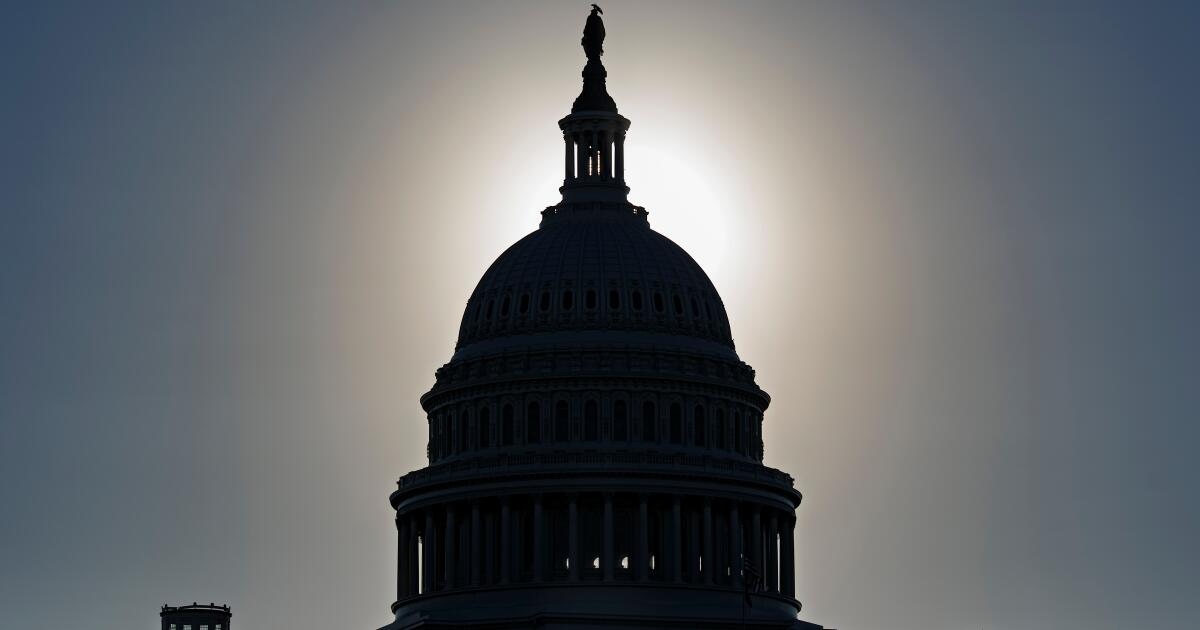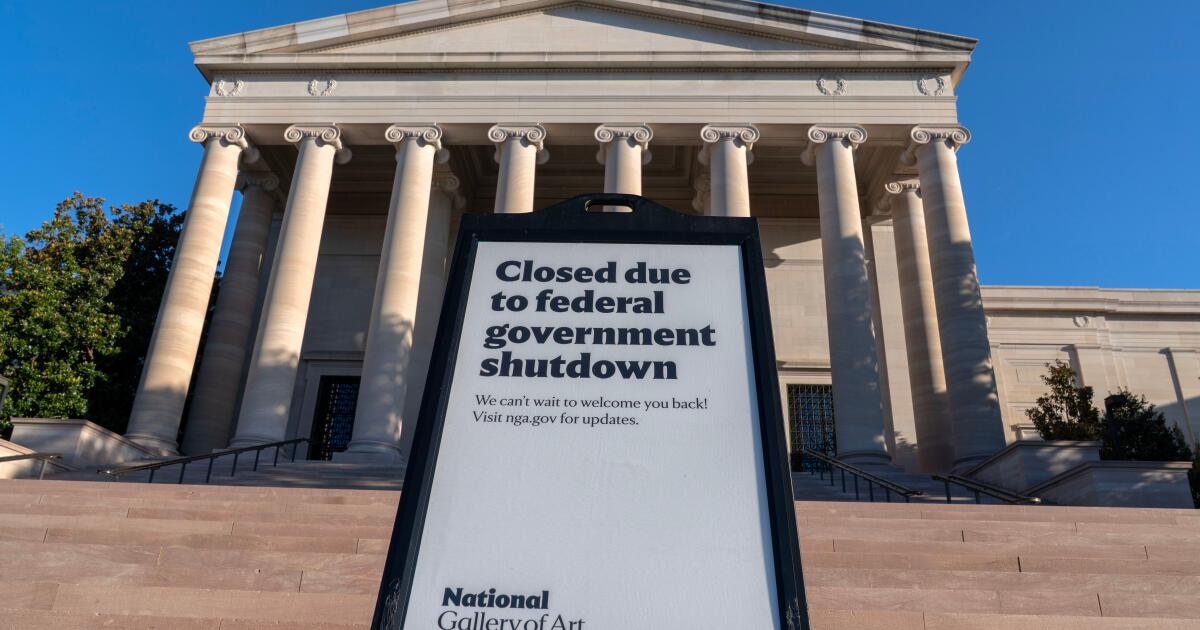Noem video blames Democrats for shutdown. These airports won’t show it
Several airports in California have refused to play a video featuring U.S. Department of Homeland Security Secretary Kristi Noem blaming Democrats for delays due to the federal government shutdown.
The video, playing for travelers waiting in Transportation Security Administration security lines at airports across the country, comes as the government entered a third week of a shutdown after Congress failed to reach an agreement on funding legislation.
“It is TSA’s top priority to make sure you have the most pleasant and efficient airport experience as possible while we keep you safe,” Noem says in the video. “However, Democrats in Congress refuse to fund the federal government and because of this many of our operations are impacted, and most of our TSA employees are working without pay.”
Officials at multiple airports in California say they are not playing the video at their locations. They include: John Wayne Airport in Orange County, Hollywood Burbank Airport, San Diego International Airport, San José Mineta International Airport, Sacramento International Airport, Oakland San Francisco Bay Airport and San Francisco International Airport.
Officials from Los Angeles International Airport did respond to questions on whether the video was being played there.
Some airport officials have refused to play the video, calling it inappropriate. On Tuesday, the ranking member of the U.S. Senate’s Committee on Commerce, Science and Transportation called for Noem to be investigated for possibly breaking the Hatch Act by asking airports to play the video.
“Recent reports indicate DHS is using taxpayer dollars and federal assets to produce and air a video message featuring Secretary Noem, in her official capacity, making political attacks against Democratic Members of Congress,” Sen. Maria Cantwell (D-Washington) wrote in a letter addressed to the Office of Special Counsel and reviewed by The Times. “This message is not just false; it appears to violate the prohibitions contained in the Hatch Act.”
The act, according to the U.S. Office of Special Counsel, is to “ensure that federal programs are administered in a nonpartisan fashion,” as well as protect federal employees from political coercion at work.
Noem’s video was received by airports on Thursday and was followed up by a verbal request from DHS officials to play it at security checkpoints, multiple airport officials told The Times.
The reasons the video is not being shown for California fliers varies.
In Orange County, airport spokesperson AnnaSophia Servin said that Homeland Security requested, to the airport’s director, that the video be played, but a final decision has not yet been made. In Burbank, political messaging is prohibited, officials said. In San José, an airport spokesperson said there have been no shutdown impacts and therefore no reason to play the video.
At San Francisco International Airport, officials determined that the video wasn’t helpful.
“SFO limits messaging at our security checkpoints to information intended to help passengers be prepared to go through the security screening process,” a spokesperson said in an email. “Any content, whether in video or print form, which does not meet this standard, will not be shown.”
When The Times asked Homeland Security officials to respond to airports not playing Noem’s video, spokesperson Tricia McLaughlin responded with Noem’s video statement blaming Democrats.
But California airports aren’t the only locations choosing not to play Noem’s message.
Airports in Oregon, Las Vegas, Charlotte, Atlanta, Phoenix, Seattle have also opted not to play it.
“We did not consent to playing the video in its current form, as we believe the Hatch Act clearly prohibits use of public assets for political purposes and messaging,” said Molly Prescott, a spokesperson for the Port of Portland, which manages Portland International Airport, said in a statement.
Oregon law also prohibits public employees from politicking on the job.
“We believe consenting to playing this video on Port assets would violate Oregon law,” she said.
Officials in New York also pushed back against airing the video.
“It is inappropriate, unacceptable, and inconsistent with the values we expect from our nation’s top public officials,” New York’s Westchester County Executive Ken Jenkins said in a statement. “The [Public Service Announcement] politicizes the impacts of a federal government shutdown on TSA Operations, and the County finds the tone to be unnecessarily alarmist.”
According to the Homeland Security website, more than 61,000 TSA employees continue to work despite a lapse in appropriations, and a lack of a paycheck to employees.
